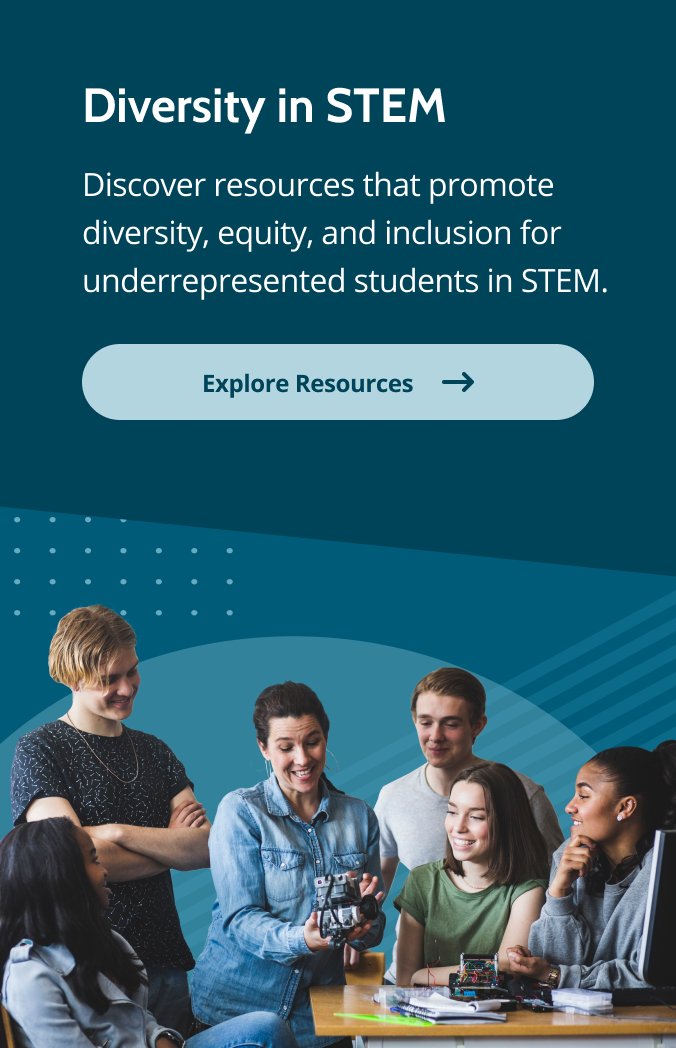Black Industry Leaders are Making Room for Diversity in Tech
- Diversity in tech is sorely lacking. This phenomenon affects not only tech companies themselves but society overall.
- Being a person of color in the tech field can be a daunting experience.
- Leaders are working to overcome the diversity gap and build bridges to support communities of color.
- Resources, mentorship, and support systems are key to breaking into the tech field.
Systemic issues affect people of color in the tech industry, just as they do outside of their work. Navigating this career field is difficult for many, but two Black tech leaders are stepping up to help forge a more inclusive community. Their work in diversity and inclusion in the tech field intends to break down barriers for the next generation of tech professionals.
Why Is Diversity in Tech Important?
According to the Equal Employment Opportunity Commission, in comparison to the overall private sector, tech companies have higher percentages of white employees than the rest of the professional community (63.5% vs. 68.5%). As technology grows, diversity becomes an increasingly significant factor to consider. Many students of color miss out on opportunities to join the tech field because it is not presented as a viable option for them.
Microsoft site reliability engineer Ashana Evans says that her early exposure and support from her HBCU served as invitations to continue down the tech path. “These projects broadened my perspective on the variety of applications computer software has in the world,” Evans shares. “If I didn’t start learning about STEM when I did I am not sure I would be where I am today,” she continues.
The historical exclusion of people from communities of color in the tech field have created a lack of inclusion in the industry. This fact is why many tech projects fail on a fundamental level, such as facial recognition and surveillance technologies.
The use of facial recognition technology is growing. However, developers have failed to adequately represent the faces of people of color in their programming, leading to poor functionality and racial bias. The Gender Shades project, first created to evaluate the recognition of gender in AI programming, soon expanded to assess racial distinctions. Research shows consistent variations between skin tone and perceived gender. For example, dark-skinned women were recognized much less often than light-skinned men, with error rates that were up to 34% higher.
This same facial recognition technology is used by major institutions like the criminal justice system. The disparity in racial recognition can lead to mistakes and injustices based on how tech is taught to recognize ethnic features. As an example, 28 members of Congress — primarily people of color — were incorrectly identified by Amazon Rekognition software.


What It Means to Be Black in Tech
According to Fortune Onwuzuruike, a cybersecurity program manager at Microsoft, just getting into the field is often an issue for young Black adults. “One thing I have noticed is that a lot of underrepresented people are not exposed to this field until later in their collegiate career.” Onwuzuruike, like many other Black people in tech, feels that visibility is vital for young Black students who want to go into the tech world.
Having a foothold to propel themselves into the tech industry also means having the connections to do so. Onwuzuruike explains that the tech world is hard to navigate without a point of reference. “Sometimes, it is not necessarily about what you know; it is who you know.” For students who belong to communities that have been historically excluded from the tech industry, breaking into the field can be difficult.
Nonetheless, Evans has hope for people of color in her field. She says, “I believe that no matter what, a person of color has the power to inspire the future generations in the tech industry.” To her, being Black in the tech field means being a beacon for others to follow. Onwuzuruike holds a similar sentiment. “Being a Black leader and providing an encouraging pathway to other future Black tech leaders brings me joy,” he concurs.
By successfully navigating the tech space and becoming leaders, Onwuzuruike and Evans are looking to increase visibility and make it easier for others like them. They hope that their presence will change the Black experience in tech positively.
Overcoming the Diversity Gap
There are many ways to address and overcome the lack of diversity in the tech sphere. Both Evans and Onwuzuruike agree that community outreach can be an effective method to do this. “Colleges should provide more outreach programs [and] minority students should be more connected to tech organizations for boot camps, info sessions, training,” Onwuzuruike states. Opportunities like these could help young people from minority groups gain exposure to tech fields at an earlier age.
Evans states that her early exposure to tech set her on an important path and that these experiences formed the foundation for her career. “My mom signed me up for the Detroit Area Pre-College Engineering Program (DAPCEP) classes for web development and engineering,” she says.
This type of opportunity is also an example of what Onwuzuruike references in his suggestions for outreach. He and Evans feel that it’s imperative to build community and create bridges to help others find their way into the tech field.
Recognizing and controlling unconscious bias can also help close the diversity gap. These biases show up within the hiring process in the tech industry, and they can also lead to poor retention. According to one study, roughly 55% of Asian, Black, and Hispanic adults between the ages of 18 and 28 said they had left or wanted to leave a tech or IT job because the company culture made them feel unwelcome or uncomfortable.
Evans and Onwuzuruike are committed to decreasing the diversity gap in tech for the next generation of workers by providing leadership, dedication, and guidance.
Resources for Black Students in Tech
Onwuzuruike and Evans are both quick to point out the importance of conferences and networking opportunities for aspiring tech professionals. Conferences can give Black people opportunities to see other Black professionals and leaders in the tech field.
Onwuzuruike attributes much of his early success to these opportunities. “I have gained scholarships, certification tips and training, and even job opportunities just from networking and attending those conferences hosted by tech-related professional organizations,” he says.
It is difficult to navigate a career when your field seems like it does not accept or understand you. For many individuals, this has been an unfortunate truth of being Black in tech. Fortunately, the Black is Tech and AfroTech conferences are now available for Black professionals looking for understanding and support. Students who cannot attend larger conferences can also look for online resources and local events.
Networking is another crucial resource for students. Utilizing campus resources, professors, and even classmates is key to creating sturdy networks. Evans adds that it’s paramount for students to “start building and nurturing professional and industry relationships while in school.” Onwuzuruike also suggests using tech itself to build those relationships through sites like LinkedIn.


Conclusion
Though the tech industry may often feel like an uncertain space for people of color, leaders like Evans and Onwuzuruike are working to fix that. Their contributions are helping to build a safer environment for future Black professionals in the tech industry.
Meet the Industry Leaders

Ashana Evans was born and raised in Detroit, Michigan. Attending North Carolina A&T was a dream come true. While at NCA&T, she received bachelor’s degrees in computer science and mathematics. She was involved on campus as president of her campus chapter of Alpha Kappa Alpha Sorority, Inc. and as a member of the Society of Women Engineers and NSBE. Upon graduating, she matriculated to Georgia Tech and obtained a master’s in computer science. Currently, she works at Microsoft as a site reliability engineer. In her spare time, she travels, invests in stocks, and is practicing to become fluent in Spanish.

Fortune Onwuzuruike is a cybersecurity program manager at Microsoft. He completed his bachelor’s degree at Georgia State University and master’s degree at Kennesaw State University in the field of health informatics and cybersecurity. He has also completed certificate programs from Google and the Harvard Business School. Fortune has certifications like PMP and HCISPP credentials, as well as multiple cloud/technology certifications from AWS and Microsoft. His job is to ensure the right information is getting to the right people so they can make the right decision at the right time.
A servant leader, Fortune is the co-founder of a not-for-profit organization — The Just Focus Foundation. This group consists of millennial philanthropists who have a passion for serving and empowering others. Each year, participants create large service projects that help those who are disfranchised. Additionally, Fortune is a part of the leadership team Blacks at Microsoft, Atlanta Chapter (BAM-ATL) as the career development lead. The mission of this team is to develop and strengthen the strong network of Black leaders at Microsoft. Fortune is also a proud member of Phi Beta Sigma Fraternity Incorporated.
Explore More College Resources

How Colleges Can Achieve Diversity in STEM
STEM fields are highly lucrative and in demand, but Black, brown, and female students face unique barriers to receiving a STEM education in college.

by Anne Dennon
Updated November 1, 2023

